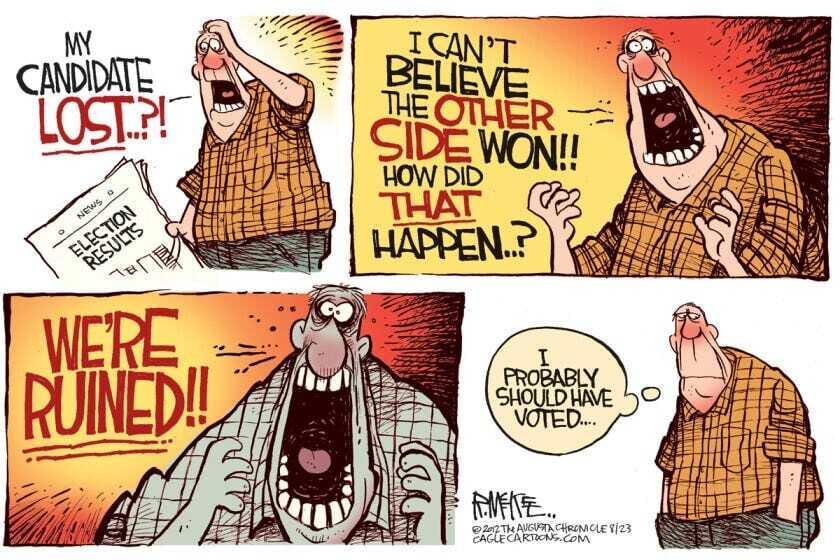- The Daily Concept
- Posts
- 🗳️ Should we be required to vote?
🗳️ Should we be required to vote?
& what can we learn from Australia's mandatory voting law?

Tomorrow, tens of millions of Americans will cast their ballots to decide the next president of the United States.
Thanks to early voting, 78 million Americans have already voted!
Here’s a picture of me after casting my early ballot last week in Miami:

While American politics has become more polarized and toxic in recent years, there has been a silver lining:
Higher Voter Turnout
During the 2020 election, 66% of the voting-eligible U.S. population — over 158 million people — voted.

That’s the highest voter turnout rate for a U.S. presidential election in over 100 years!
Given the intensity of the 2024 race and proclamations from both candidates that their opponent is a threat to democracy, we could top 66% this year.

But imagine a world where we had a voter turnout rate over 80% — or even 90%!
You might be surprised to learn that several major democracies like Brazil and Australia have achieved that, thanks to mandatory voting laws that require citizens to vote.

Mandatory Voting Facts:
In 1892, Belgium became the first country to introduce mandatory voting
There are 22 countries around the world with compulsory voting laws
About 744 million people live in these countries and are legally required to vote

Australia, which has consistently maintained voter turnout rates over 90%, introduced mandatory voting 100 years ago.
The idea was that the government should be supported by a majority of citizens — not just a majority of the people who show up to vote.
Australian historian Judith Brett argued that a mandatory voting system has strengthened Australian democracy by encouraging:
More moderate political candidates
Better representation of different groups in government
Greater political participation from recently naturalized citizens

You’re probably asking:
What happens if you don’t vote?
In most countries, non-voters are punished with a small fine.
The Australian fine is A$20 - the equivalent of $15 USD.
In some countries with mandatory voting laws, repeat offenders might face higher fines and other punishments.
If they don’t vote, they could be prevented from:
getting a government job or attending a public university
applying for a passport, in the case of Brazil
Some countries, like Egypt, Fiji, and Luxembourg have mandatory voting laws on the books but don't enforce them.
One of the unexpected outcomes of mandatory voting laws is that some people submit blank or defaced ballots as a way of protesting against the voting requirements.
These are called “spoiled ballots,” and they made up 6% of ballots cast in Australia's 2010 election.

Voting: Right or Duty?
We can conclude by saying that the American political system grants us the right to vote, whereas a mandatory voting system makes voting a duty that we must fulfill.
Some American writers advocate for mandatory voting laws in the U.S.
E.J. Dionne Jr. and Miles Rapoport published a book called 100% Democracy, which makes the case for mandatory voting in the U.S.

In an article outlining the arguments of their book, they wrote:
“Universal voting could launch an upward cycle of participation and maybe even build trust in our democratic institutions.”
That certainly sounds nice, but it's unclear whether the American people actually want mandatory voting.
A poll from the Brookings Institution and Harvard Kennedy School’s Ash Center found that 64% of Americans were against mandatory voting, compared to just 26% who supported it.

Some countries that had mandatory voting laws have repealed them in recent decades, so the idea isn’t universally popular.
Either way, it’s interesting to consider the different forms that democracy takes around the world.
ART OF THE DAY
Election Scene. Statehouse in Philadelphia by John Lewis Krimmel. 1815.
